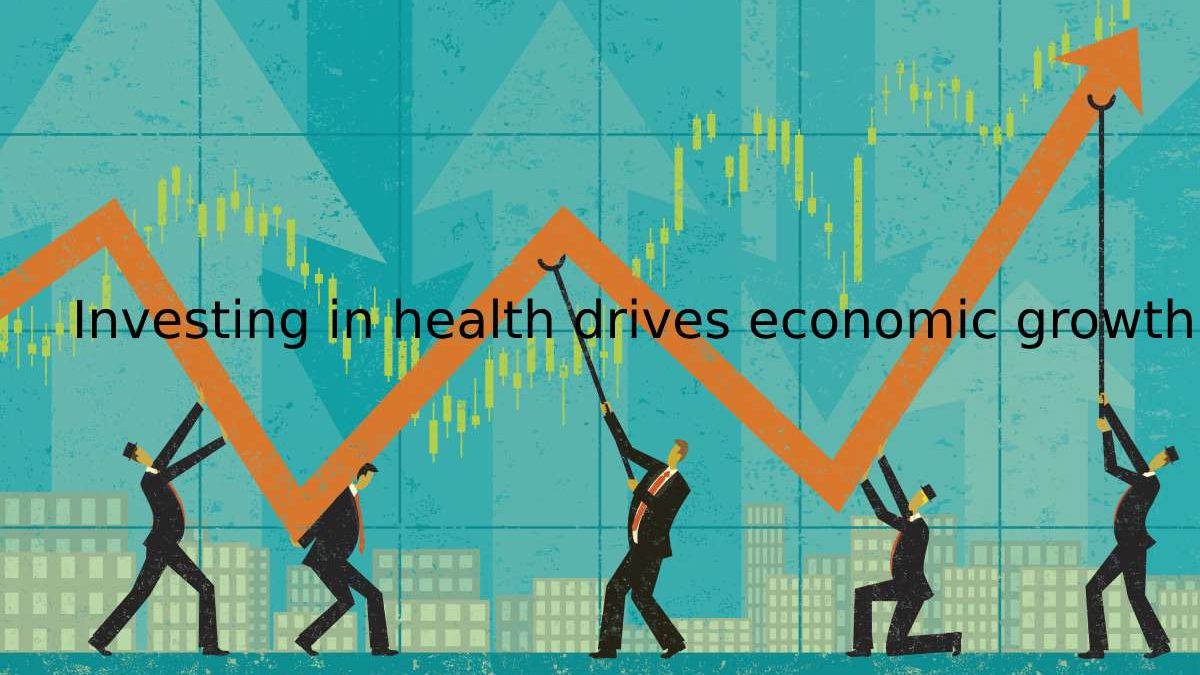Table of Contents
Investing in Health Drives Economic Growth ?
Health drives? Would you trust me if I said that investing in health is profitable for governments? We know that countries’ healthcare spending is an economic drag and “a bit” for the overall economy and economic growth. Despite these common notions, there is growing evidence and trends to the contrary. Particularly for emerging and some major developed economies. Investing in health directly benefits countries’ economic growth.
Given that the Treasury Secretary is primarily the ultimate arbiter of sound economic governance in any country, it is helpful to examine some of the potentially positive links between the portfolio of the Health Secretary and the policy concerns of the Department. For example, finance – relating to political taxation, investment incentives. Trade flows and current account management, to name a few.
Health Spending Levels The Playing Field:
In the disputes of the International Monetary Fund’s First Deputy Managing Director, David Lipton, spending on health. And education is the “great leveller,” a statement that shouldn’t be political or ideological. Instead, it gives them a stronger foundation and network to pursue their economic and competitive goals. Particularly for emerging economies where access to essential health services is often poor.
Health Spending Drives Productivity –
Perhaps the most well-researched and researched part of the entire health-economy connection debate boils down. To a phrase I like to use Healthy populations make populations more productive (and the opposite is usually true).
Investing In Health Care Is An Essential Tool For Minimizing National Risks:
In a recent study of the US economy from 1973 to the present, published in the Washington Post, health care jobs were the best of all job categories and stabilized the economy. Likewise, during the most profound economic crisis in the United States 5 years ago. Healthcare was the only sector that created jobs during the deep recession. For emerging markets, there can be few better recent examples than the Ebola crisis. Which not only caused a deep economic meltdown in a handful of West African economies—but also impacted the entire foreign direct investment landscape across Africa. Dampening growth and trade in a vibrant economic climate. The global economic impact of the Ebola crisis in West Africa and HIV/AIDS is remarkably well known. Investing in appropriate healthcare systems would have significantly minimized, if not eliminated. Some of these crises and the resulting severe economic shocks.
Critical Investments In The Healthcare Ecosystem Foster Competitiveness:
For emerging markets to develop competitive healthcare, the innovative ecosystem would make them stronger internally and better competitors internationally. Who would have thought that an Argentine cardiologist, Julio Palmaz, invented the modern cardiac stent? Likewise, who would dare to know that an Algerian-born French neurosurgeon, Dr Alim-Louis Benabid, developed “deep brain stimulation,” a therapy and technology that treats the symptoms of Parkinson’s disease? Mexico, Brazil, South Africa, Costa Rica and countless other countries have to drive forward the development of their medical technology base. Critical to this is raising the standard of healthcare that inspires the thriving of the biomedical engineering profession. When countries decide that their innovation is of tremendous value, Many providers, venture capital, developers of world-class healthcare facilities, etc., naturally appear and support it in health drives .
Healthcare Infrastructure Needed for Foreign Direct Investment:
When I was Director of the Russia/CIS Office at the US Department of Commerce, our mandate was to help US investors in what they perceived as a challenging business environment; I was struck by the importance that objective factors played in these decisions.
Medical Tourism Is An Essential Tool For Promoting Competitiveness.
Those who travel for medical care do not catch a cold; they tend to seek sophisticated treatment or surgery in countries where appropriate care can be provided more cheaply and often more effectively than at home. Developing an economically dynamic economic sector, as Thailand, Turkey, Singapore, Colombia, Mexico and South Africa have done, can be a fundamental lightning rod. Medical tourism also plays an essential role for academics in the United States.
These players are literally at the heart of America’s healthcare competitiveness. The development of medical tourism in the health sector and its elements have had a dramatic and positive impact on the country’s international competitiveness. In other words, medical tourism helps by various factors. These factors include access to advanced medical technology, anticipated health benefits, and costs.


